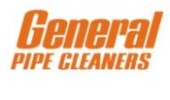
Ontario, Quebec hit hardest by prolonged propane shortages
February 10, 2014 | By HPAC Magazine
News Feature By Patrick Callan
Several reports have surfaced this winter about severe propane shortages in rural parts of eastern Ontario and western Quebec. Shrinking supplies have left thousands of Canadians living in those areas – many of which depend on propane to heat their homes – shivering in the cold. The Canadian Propane Association (CPA) has denied allegations about a propane shortage in Canada, insisting that delivery disruptions have come as a result of “early and sustained colder-than-normal winter temperatures coupled with transportation-related issues.”
Poor road conditions, according to the CPA, have delayed some Ontario and Quebec propane retailers from having their supplies replenished. “At this time, the Canadian Propane Association recognizes this is an isolated situation and does not affect the industry as a whole.”
However, a former Ontario Liberal MP known as Canada’s “gas guru,” is not buying it.
“Prior to this colder-than-usual winter there was signs of a run on propane inventories – particularly in the U.S.,” said Dan McTeague, founder of www.TomorrowsGasPriceToday.com, a website created to help Canadians save money at the pumps and to highlight the lack of competition in Canada’s energy sector.
The National Energy Board’s propane winter outlook, released at the end of November, called for, among other things, a mild winter that could lead to lower propane demand in Canada and the U.S. It also said that with 1.5 million cubic metres in inventory (just shy of the five-year average) the Canadian propane industry had essentially recovered from the very low levels reported in the previous heating season in April 2013.
McTeague said this winter’s polar vortex weather has undoubtedly put a strain on propane supplies, but the problem started before the cold weather arrived when American farmers were scrambling to dry their bumper crops, and turned to Canadian propane.
“We went into the first weeks of December with lower inventory than in the past several years, to a level where Canada was meeting part of the U.S. demand by exporting a significant amount of surplus,” he said. “What had been a tight inventory situation has turned into a much more difficult one where there is now rationing and there are some who are having to go several days and perilously close to empty in terms of their heating options.”
But the root of the problem goes back even further, according to McTeague, to when Superior Propane was granted a monopoly in the Canadian propane industry. Superior Propane acquired ICG Propane on December 7, 1998. On the same day, the Commissioner of Competition filed an application under section 92 of the Competition Act to dissolve the merger, saying it would be detrimental to competition. Although the Competition Tribunal found in August 2000 that indeed the merger would reduce competition in many local markets and prevent competition in the Atlantic region, it sided with Superior, who used the “efficiency defence” (that the negative impacts would be offset by gains in efficiency) in Section 96 of the Act.
Twice the Commissioner appealed the decision in the early 2000s, arguing that the Competition Tribunal had misinterpreted Section 96, but on both occasions the initial ruling was upheld.
“Under the guise of efficiency, which was a loophole of the Competition Act, traditional wholesalers were merged in favour of a monopoly that has now made a very bad situation on inventory a lot worse,” said McTeague.
“One company can choose where to provide its products strategically, and unfortunately at this time western Quebec and the area around Ottawa is more adversely affected,” he said. “And it doesn’t look like that’s about to end anytime soon given the climate continues to remain relatively cold this winter.”
McTeague said alarm bells should be going off in the minds of regulators and parliamentarians in Ottawa when a significant number of Canadians are at risk of not being able to stay warm.
“When you get out of the big smoke, in most cities across Canada propane is in fact the petroleum of choice,” he said of the roughly nine per cent of Canadian homes that rely on propane. “There’s people out there who are prepared to pay any price for the ability to heat but find themselves limited.”
As one of the world’s energy superpowers, McTeague said it is important to have a strong energy-exporting sector, but we need to be able to take care of our own first. “Everybody universally knew this was going to be a problem and now that it has happened people are scratching their heads,” he said. “We’ve got to get back to the drawing board and start to rethink energy policy and competition policy in Canada.”




